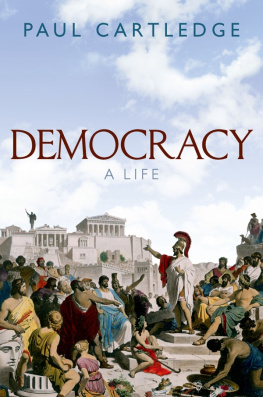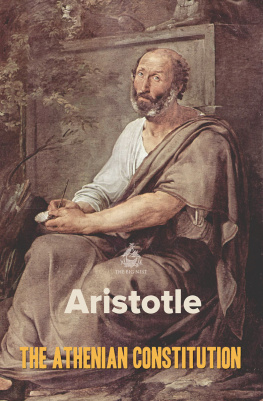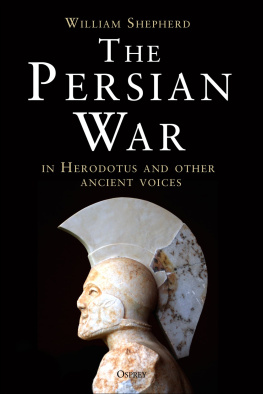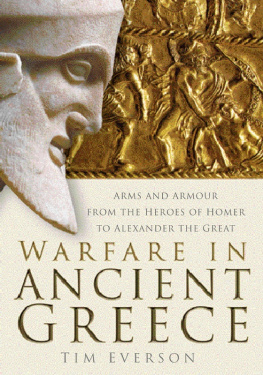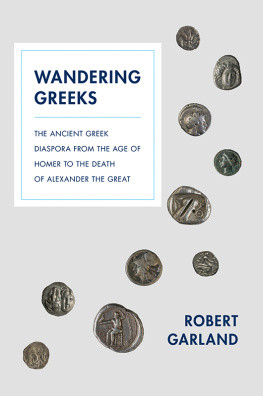| Strategic Humanism: Lessons on Leadership From the Ancient Greeks |
| Claudia Hauer |
| Political Animal Publishing (2020) |
|
| Tags: | Philosophy, Political, Political Science, History & Theory, Public Policy, Military Policy |
| Philosophyttt Politicalttt Political Sciencettt History & Theoryttt Public Policyttt Military Policyttt |
Strategic Humanism takes the reader through the works of Homer, Herodotus, Thucydides, and Aristotle, laying out in clear and accessible terms their thoughts on leadership, war, and their relationship to individuals, nations, culture, and technology. In so doing, the book traces the path of ancient Greek democracy from infancy to maturity, culminating in the Athenian demise. Throughout, Hauer holds up the political, cultural, literary, and philosophical milieu of ancient Greece as a kind of looking glass to our present era of rapid technological change and democratic malaise.**
STRATEGIC
HUMANISM
Lessons on Leadership
from the Ancient Greeks
Claudia Hauer
Political Animal Press
Toronto Chicago
Copyright 2020 Claudia Hauer
All rights reserved. No part of this book may be reproduced, stored in a retrieval system, or transmitted, in any form or by any means, without permission in writing from the publisher or a licence from The Canadian Copyright Licensing Agency (Access Copyright). For a copyright licence, visit accesscopyright.ca.
Political Animal Press
www.politicalanimalpress.com
Distributed by the University of Toronto Press
www.utpdistribution.com
Cataloguing data available from Library and Archives Canada
ISBN 978-1-895131-44-4 (paperback)
ISBN 978-1-895131-45-1 (ebook)
Typeset in Garamond and Lato
Printed and bound in Canada
Contents
Acknowledgments
I am grateful to St. John's College in Santa Fe, for granting me leave of absence to spend time over the last decade at the U.S. Air Force Academy as a visiting professor. My heartfelt gratitude goes to the Department of Philosophy and the Department of English and Fine Arts at the U.S. Air Force Academy for hosting me so generously and with such kindness, and for creating the haven from which this manuscript emerged. I thank Political Animal Press for creating this venue for authors who are trying to link theory and practice, something that is so needed in our world.
The author's opinions do not reflect the official position of the U.S. Air Force Academy or the Department of Defense.
For my husband Jim, who has always believed in me.
Introduction
The first class I taught at the Air Force Academy, in 2010, was an introduction to Greek classics, and included the historian Thucydides' History of the Peloponnesian War . At the beginning of the second class, as we prepared to discuss our reading in Thucydides' work, a cadet challenged me: 'Why do we still read this?" His two-fold point was clear: not only was this a suspiciously ancient text, but in addition, the big war strategies that Thucydides describes had not been employed in warfare by the United States since Operation Desert Storm in 1991. Counterinsurgency, not big war, was a more popular topic in strategic circles in 2010. Was Thucydides still a relevant part of an American military officer's education? We made a deal. If I couldn't show them something of contemporary relevance in Thucydides' work by the end of the class, I would replace it with something that had more immediate appeal. Long story short, we stuck with Thucydides.
Regardless of whether we are in an age of big war, my cadets and I discovered that Thucydides describes a cycle of human violence still easily recognizable in today's news headlines. Thucydides' text may not be the best source for studying current military tactics, but it remains an excellent source for understanding the principles of human conflict that form the basis of strategy. "Strategy is difficult, but we do not need to rediscover how to do it," asserts United States Air Force Brigadier General Scott Bethel, "Planners and senior leaders should be steeped in the liberal arts."
In his 2002 book, Warrior Politics: Why Leadership Demands a Pagan Ethos , the journalist Robert Kaplan concludes that "As future crises arrive in steep waves, our leaders will realize that the world is not "modern" or "postmodern" but only a continuation of the ancient -- a world that, despite its technologies, the best Chinese, Greek, and Roman philosophers would have understood and known how to navigate." Kaplan's work illustrates connections between ancient and modern, and make it clear that the classics remain relevant for today's leaders. The essays in this book are intended similarly to illustrate how we can read the Greek classics both seriously for their own sake, and also with an eye to their continued relevance. In order to learn the lessons we need to learn about the timeless aspects of conflict, we need to adopt this integrated way of reading these ancient texts. In this context, we are not looking for an academic answer to the question Why do we still read this?, but rather attempting to explore the connection between ancient and modern in more practical terms of leadership and decision-making. These essays study some of the ways that the characters and scenarios found in the texts of Homer, Herodotus, Thucydides and Aristotle continue to arise today in ways that do not so much replicate the originals, but reference them, in the spirit of Mark Twain's observation that history doesn't repeat itself; it rhymes.
Many of the readers of this book will have come of age in the midst of e-readers and smart phones. The digital generations are subjected to the pervasive social expectation that there are technological solutions, not just to problems of engineering and science, but to all humanity's problems. The media bombards us with mechanical resources - digital devices, prescription drugs, and others -- that are supposed to solve all 'lifestyle' problems. This social environment is profoundly Cartesian, that is to say, post-Hellenic. The rise of the social sciences has been predicated on the assumption that the human dimensions of political and social behavior can be quantified in ways that will make them receptive to mechanical, quantifiable solutions. In this Cartesian climate, it remains the humanities, through offering direct access to works of literature, philosophy and history that are "substantially and methodologically unbounded" by the quantifiable methods of science, that can preserve their access to the whole spectrum of the human condition.
The Greek texts that form the basis for this collection of essays belong to a substantial Greek humanist tradition. Greek humanism reflects an interest in the human as a whole being, possessing some inseparable combination of rational and irrational qualities. This Greek humanism is not to be confused with the rational humanism of the Enlightenment, which separated reason from its corporeal backdrop of emotion and imagination, or with humanitarianism, a concept introduced by Francis Bacon, which excludes the irrational emotions and appetites, and focuses on how pure reason can improve the physical quality of life. Greek humanism focuses on our way of being human, and our way of exercising the synthesis of our capacities. This Greek humanism does not aim at some abstract notion of humanity, but at our individual way of being. As such, Greek humanism should resonate strongly today. As this book goes to print, the novel coronavirus has profoundly disrupted business as usual around the world. Individuals have had to come to a reckoning with their assumptions about what it means to be human in an age in which technology has so far not succeeded in eradicating the problem that threatens us.

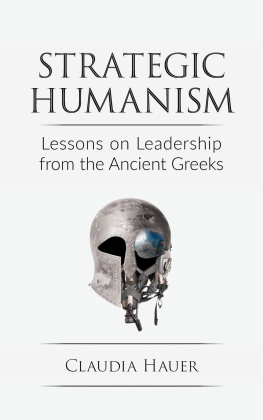
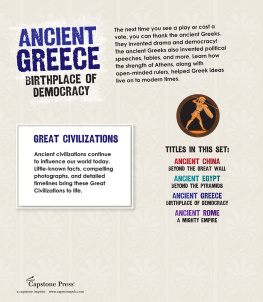
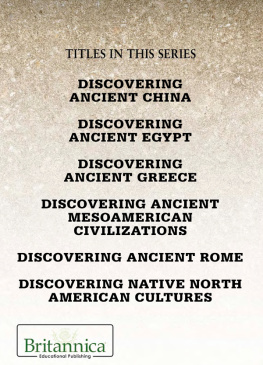
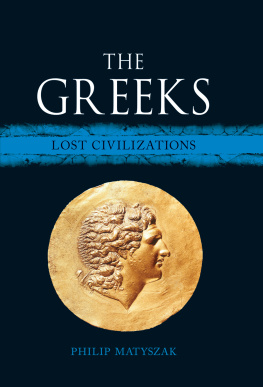
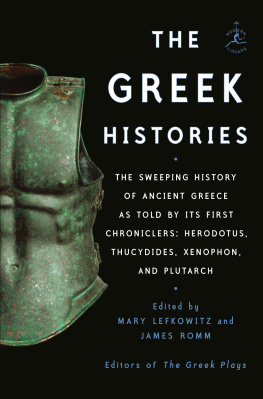
![Michael Lovano - The World of Ancient Greece: A Daily Life Encyclopedia [2 Volumes]](/uploads/posts/book/268736/thumbs/michael-lovano-the-world-of-ancient-greece-a.jpg)

